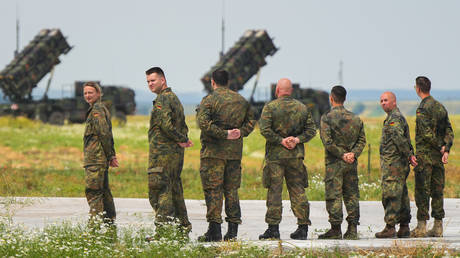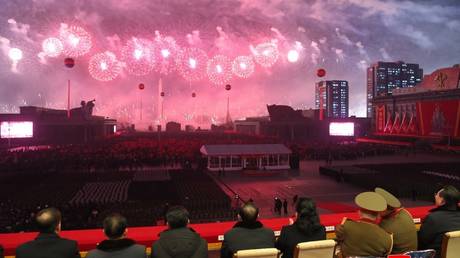
Arndt Freytag von Loringhoven penned an op-ed suggesting German troops should be permanently stationed in Poland
Polish conservatives have denounced a suggestion from Germany’s former ambassador to the country that Berlin should permanently station troops there in order to strengthen the nations’ relationship.
Arndt Freytag von Loringhoven advocated the move in an op-ed published by Frankfurter Allgemeine-Zeitung last week.
“With the upcoming strengthening of NATO’s eastern flank, a closer integration of the [German and Polish] armed forces and, in the longer term, a permanent transfer of troops to Poland are in the interest of both sides,” he wrote.
Suggesting it was a slippery slope from von Loringhoven’s proposal to Nazi occupation, Law and Justice (PiS) MEP Jacek Saryusz-Wolski sarcastically responded, “Any associations?” in a post on X (formerly Twitter) quoting the article.
“Soon, thanks to the new EU treaty, Germany will once again ‘permanently’ occupy the territories of… Western Poland?” Constitutional Court Justice Krystyna Pawlowicz warned in a post on X, also responding to von Loringhoven’s piece.
“Hitler’s dreams will come true after many years, without the use of force,” Pawlowicz lamented, excoriating Poles for offering “NO RESISTANCE” to the incoming EU-friendly government of Donald Tusk.
However, a journalist with liberal outlet Gazeta Wyborcza commented that President Andrzej Duda had already agreed to station German troops in eastern Poland in January in order to install Patriot missile defense systems.
Von Loringhoven took aim directly at PiS in the title of his op-ed, accusing the conservative party of losing Poles’ trust “with its nationalist politics,” while framing the newly elected centrist government as representing an “opportunity to form a leadership partnership on an equal footing.”
“Mistrust in Poland is still high,” the diplomat complained, blaming “internal polarization and anti-German and anti-European inflammatory propaganda.” He urged Warsaw to focus on the important issues, such as “joint efforts to help Ukraine win.”
Von Loringhoven argued that making Kiev wait until the end of the conflict to join the EU and NATO amounted to “letting [Russian President Vladimir] Putin take the reins,” pushing instead for a “more flexible EU” that does not require a unanimous vote by all member countries in order to make decisions on foreign and financial policy or even new members. “Partial NATO membership” should also be considered for Ukraine, he suggested.
Former European Council president Donald Tusk led a coalition of three opposition parties to victory in Poland’s elections last month, signaling the end of the country’s drift away from the EU under PiS leadership – a result celebrated by Brussels and the West. Tusk previously served as prime minister from 2007 to 2014.




